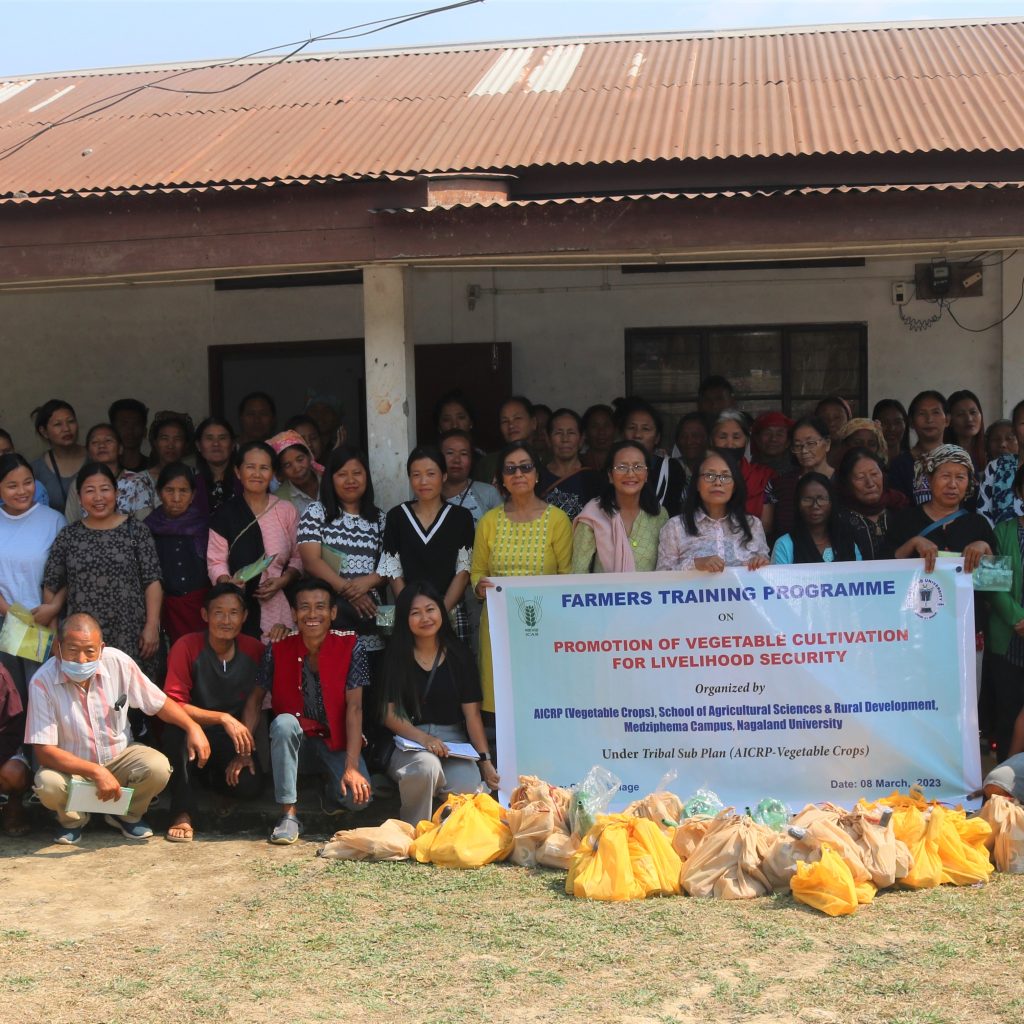Published on Mar 13, 2023
By EMN
Share

The Farmers' training programme headed by Prof. Akali Sema, in-charge, TSP-AICRP (VC) was held mainly to highlight and encourage the farmers of the village on the importance of growing vegetables in kitchen gardens to uplift their livelihood, informed AICRP-vegetable crops, SASRD, in a press release.
In the first technical session, Dr. Moakala Changkiri, Scientist, AICRP (VC) & project in-charge, NEH Component, Dept. of Horticulture, SASRD, gave the farmers basic tips on vegetable cultivation and emphasised on the methodology and various ideas for production of vegetable crops without the use of inorganic sources.
Dr. Changkiri encouraged the farmers to try and adopt the scientific methods of organic production of vegetables, which is practiced and recommended by the Centre after years of trials.
She highlighted on the importance of nursery, particularly for those high-value vegetable crops, in order to get better economic returns and also demonstrated on the seedling root-dip method with the use of biofertilisers to get better crop.
The farmers were also taught on the use of neem oil in vegetable garden and how effectively it can be used as a natural insecticide in day-to-day living.
As desired by the women farmer participants, Dr. Changkiri also dwelled on the importance and method of soil solarisation in vegetable cultivation and how they can manage soil pathogens and improve the soil.
In the second technical session, Dr. Otto S Awomi, Lecturer, Living Bible College, Ayinato, who spoke on the protection of vegetable crops, briefed the farmers on the common insect pests that attack crops, the various means of identification of insects and pest management.
He also demonstrated on the yellow sticky traps and light traps for trapping insects and preparation of NSKE with locally-grown neem tree and explained the importance of NSKE in vegetable cultivation.
The training was attended by about 93 farmers. During the wrap-up session, there was an interaction with the farmers where they expressed their views about the training programme.
Summer vegetable seeds, watering cans and khurpi were also distributed to the farmers, the release stated.